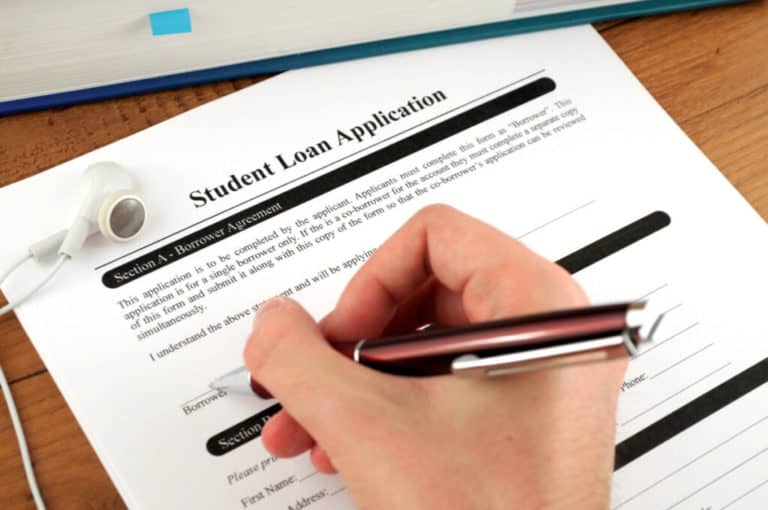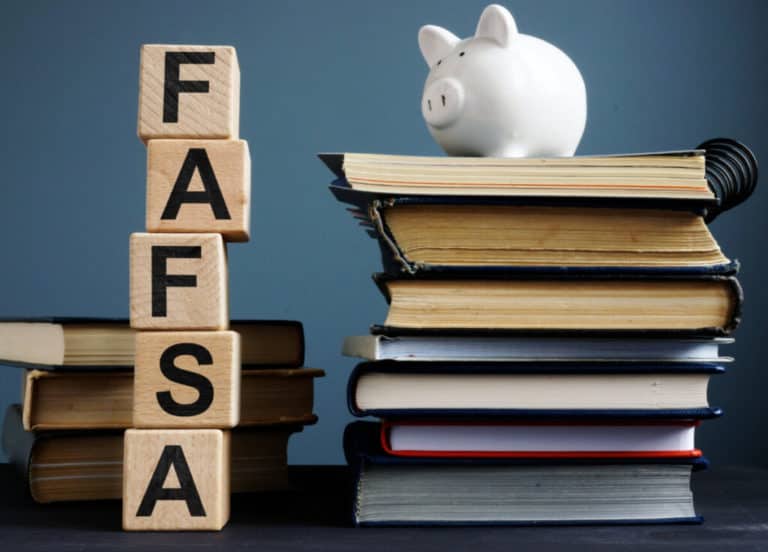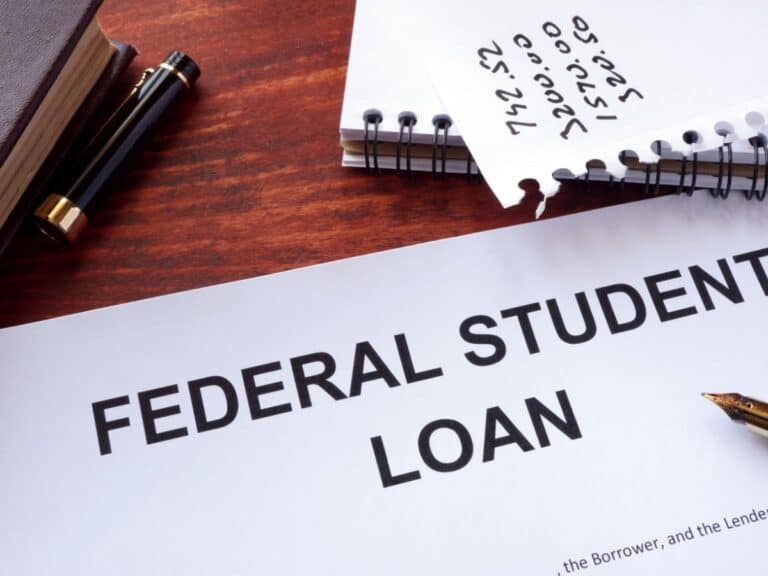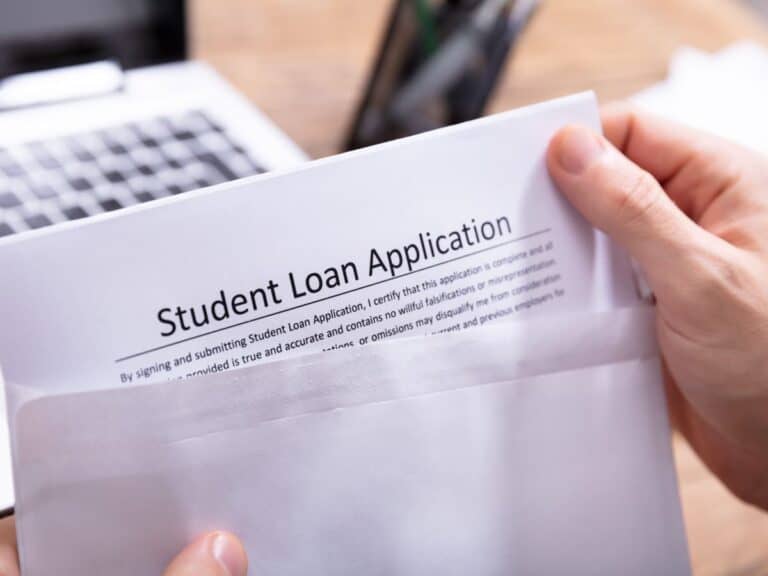Private Student Loans
College students can borrow money either from the federal government or from private sources. Those who need more than their federal financial aid or do not qualify for any federal aid may resort to private lenders.
Private student loans are non-federal loans from various financial sources, including state agencies and academic institutions.
They are usually used to deal with a college payment gap after all free money sources have been exhausted.
Private student loans generally have higher interest rates and less flexible repayment terms.
On the other hand, federal student loans are provided by the US government.
Both private and federal student loans are designed to help students pay for their postsecondary education.
While they share the said common goal, there are more differences between them than similarities, ranging from their sources, eligibility requirements, interest rates to repayment plans.
Before we talk about private student loans more in-depth, let’s first quickly compare them with federal student loans:
| Private Student Loan | Federal Student Loan | |
| Application form | Proprietary | FAFSA |
| Credit history | Required | Not required |
| Co-signer | Required (if no credit history) | Not required |
| Amount up to total COA | Yes | No |
| Need-based | No | Subsidized loan |
| Interest | Variable and fixed | Fixed |
| Interest rate | 4% to 16% | 5.50% to 8.05% |
| Change in repayment plan | Not allowed | Allowed |
| Loan terms | 15 years, with some 30 years | Up to 30 years |
| Loan forgiveness | Available | Not available |
How to Get Private Student Loans
To get a private student loan, you need to find a private lender that proves to be the most favorable for you, especially in terms of providing you with the most workable repayment terms and conditions.
Later, I will give you a list of some of the best private student loan companies around — don’t stop reading now!
Like when applying for a federal student loan, there is no cost to applying for a private student loan.
The initial steps are the same: completing the application form and choosing from the options for which you are eligible.
Of course, you have to provide important pieces of information such as your credit score and income details, or, in the absence of those, a co-signer who will pledge to pay back the student loan just in case you are unable to do so.
How Much Should You Borrow
Students should borrow only what they need and what they think they can afford to pay back after college.
For this, one must take into account his or her chosen career path and how much money it will allow him or her to make.
There is no exact amount as to how much money a degree-seeking individual should borrow from a private student loan provider because everyone’s academic goals and financial needs are different.
But the general consensus is that you should never borrow more money than necessary.
Private Student Loans Eligibillity
Individuals who are attending eligible schools and enrolled in college at least half-time (or enrolled at least 6 credits per semester), in many instances, are eligible to apply for private student loans.
Additional eligibility requirements may vary slightly from one private student loan company to the other.
The following are some of the most common of them:
- Being a US citizen or a permanent resident
- Attending an eligible college
- Enrolled at least half-time
- Having a good credit score or a good co-signer
- Having a good income and debt-to-income ratio (the borrower or the co-signer)
When it comes to the documents to submit, things can vary just like the requirements to be eligible to apply.
Here are the ones that are most likely you will have to provide:
- Social Security Number
- Permanent US address
- School information
- Cost of attendance
- Estimated financial aid from other sources
- Employment and income details (the borrower’s or the co-signer’s)
Are Private Student Loans Good or Bad?
Private student loans are good for college students whose federal financial aid awards are insufficient to make paying for higher education feasible.
A good private loan has the best repayment terms for the student after graduating.
Many different things contribute as to what makes a private student loan good by definition.
The private lender’s reputation, application requirements, amount a student can take out, interest rate, repayment period — a good private loan for students is decided by various points of reference.
Resorting to borrowing money from a private company for college is good if it’s done properly.
Otherwise, you could end up paying back your loan for the most part of your working adult life, keeping you from gearing up for retirement.
The best time to take out private student loans, according to most experts, is after college students have exhausted their various federal financial aid options, which are usually not enough to cover all college costs.
Most colleges and universities never fall short of advising applicants to fill out the FAFSA form ASAP.
Doing so allows them to determine without delay which types of federal financial aid they are eligible for and how much they could get from the federal government to help them pay for a part of their undergraduate studies.
Students usually receive financial aid award letters between February and May, though some may arrive as early as November, depending on the postsecondary institution.
The best time to apply for private student loans, generally speaking, is after the receipt of the said letters.
However, you may apply earlier for a private loan if you are 100% certain you will not be eligible for any federal aid.
Private Student Loans Pros
Knowing the pros and cons of private student loans and getting one, too, allows you to determine whether or not the advantages greatly outweigh the disadvantages and whether or not a private student loan is better than a federal loan.
More Money to Borrow
According to Debt.org, it’s not uncommon for some private student loan companies to cap undergraduate loans at around $30,000 per year for undergraduates.
Graduate and professional students have higher loan limits.
Some lenders even allow students to borrow up to the full cost of their undergraduate studies, which means that they can rest assured that they will never run out of money to stay in school until the time they graduate.
Long Repayment Period
Many repayment plans for certain types of federal loans have a 10-year period.
On the other hand, most repayment periods for private student loans are up to 15 years — some are even 30 years long, depending on the amount borrowed.
The longer the repayment plan, the lower your monthly payments.
However, the bigger picture is that it will cause you to pay more toward your debt. Also, a long repayment plan is not the fastest way to be debt-free.
Better Repayment Terms
Having low Expected Family Contribution (EFC) is synonymous with having low federal financial aid, which means that you will have to cover the rest of college costs using money from your own savings or loans.
Meanwhile, a low EFC means the complete opposite in the private student loan sphere: coming from a high-income family allows you to have access to higher loans with better interest rates and repayment terms and conditions.
Not Demonstrated Need-Based
The FAFSA is used by the federal government to determine how much aid you should receive based on your family’s ability to pay for college. And if you don’t demonstrate any need, you can kiss your chance of getting federal aid goodbye.
Private student loans, on the other hand, are not need-based — you can borrow even if you are from a wealthy family.
However, borrowers (or their co-signers) should be able to demonstrate creditworthiness.
Personalized Interest Rates
All federal student loans have fixed interest rates, which means that the interest will remain the same throughout the loan’s duration. While there are also fixed-rate private student loans, there are also variable-rate private loans.
In any case, private student loan interest rates are based on the borrower’s qualifications, which means that students (or their co-signers) with phenomenal credit may enjoy lower interest rates.
Cons
A Co-Signer is Almost Always Required
Not too many undergraduate students have a credit history. Because private student loan companies run a credit check to determine eligibility to borrow money, most degree-seeking individuals have to have a co-signer.
Most private lenders require borrowers with no credit history (or with poor credit history) to have a parent, guardian or any other relative to co-sign, and failure to find one who qualifies as a co-signer can mean loan rejection.
Unsubsidized
Some federal student loans are subsidized — the US government takes care of interests while the borrowers are still enrolled in college for at least half-time. Of course, the rest will have to be dealt with by the borrower.
However, with private student loans, monthly interests simply pile up, which borrowers have to pay after graduating from college or a few months after they earn their undergraduate degree or as soon as they drop below half-time enrollment.
No Forgiveness
In the world of federal financial aid, there’s the so-called loan forgiveness, which gets your student debt or a part of it forgiven if you meet requirements such as working as a teacher or medical professional or being a government employee.
Meanwhile, loan forgiveness is something that does not exist in the private student loan realm — having the noblest profession on the face of the planet means absolutely nothing; you will have to repay your borrowed money.
No IBR
IBR stands for income-based repayment, and it’s a federal student loan repayment plan in which the amount you owe the US government each month is calculated using your salary and family size.
Working individuals with private student loan debt, on the other hand, cannot enjoy the perks of IBR as monthly repayment terms remain fixed no matter how much they are making per month or how many children they have.
Risk of Overborrowing
Earlier while we were discussing the perks of private student loans, we mentioned that you can borrow more money from the lender.
Although it’s definitely a good thing, it’s also a bad thing for your future finances.
That’s because it runs the risk of you borrowing more than you need for college — and probably more than you can repay with ease after college!
Federal student loans, on the other hand, make overborrowing practically impossible.
Top 10 Private Student Loan Companies
In this part of this post, we’ll check out some of the best private student loan companies out there.
Each private student loan company with a good reputation comes with its own strengths and weaknesses. Finding one that’s best for your academic goals and financial situation is important.
1. Sallie Mae
One of the nicest things about Sallie Mae is that you can borrow anywhere from as low as $1,000 to the total cost of your undergraduate studies, which means that there’s no need to consider additional financial sources.
There are three repayment plans to choose from: in-school deferment, interest only and partial interest.
2. College Ave
Making it trouble-free to borrow from College Ave is the fact that the application and approval process are online.
Many borrowers love that repayment plans are flexible, ranging from five to 15 years.
It’s possible to borrow up to 100% of your school-certified cost of attendance.
3. Earnest
Other than undergraduates and graduate and professional students, Earnest also caters to individuals who are looking to apply for a new loan to pay off their current loan, which usually has a lower interest rate than the previous loan.
Unfortunately, students in states such as Kentucky and Nevada are not eligible to apply.
4. SoFi
While it started as a student loan refinancing company, SoFi eventually added private student loans to its resume in 2019.
Other than flexible refinancing options, there are also programs for borrowers who experience financial hardship.
But be warned: processing can take anywhere from one month to six weeks.
5. Ascent
You can borrow up to 100% of your total cost of attendance, although capped at $400,000, depending on your degree.
There are competitive loans for borrowers with co-signers and flexible options for those without co-signers.
Being offered by the company, too, is a financial hardship forbearance of up to 24 months.
6. Citizens
Like the PLUS Loan of the federal government, Citizens also allow parents of undergraduate students to borrow money to take care of their kids’ educational costs. There are also loans specific for students working on certain degrees.
The company offers multi-year loan approvals, too, which means that a single approval is good for 4 years of college.
7. MEFA
What’s really nice about MEFA is that it has fixed-rate private student loans, which means that the monthly interest rate will not change from month to month throughout the duration of your loan.
Unfortunately, you are not eligible to take out loan money from MEFA if you are attending a for-profit school.
8. Custom Choice
Without any hard credit check, you can determine whether or not you will qualify to take out a loan from Custom Choice, which can range anywhere from as low as $1,000 to as high as $99,999.
And if you graduate with at least a bachelor’s degree, the lender will give you a 2% principal reduction.
9. Edly
There are two things about Edly that make the private student loan company a standout.
First, repayment terms will be based on the borrower’s income.
Second, making less than $30,00 per year (including losing one’s job) results in a deferment.
Sadly, borrowers have to make do with the total loan limit amounting to $25,000.
10. MPower Financing
Students can borrow money from MPower Financing only within two years of earning a college degree or working on another one- or two-year degree.
But the good news is that the company requires no co-signing whatsoever.
Unlike most other private student loan companies, however, it works with only 400 institutions in the US and Canada.
Disclaimer: The views and opinions expressed in this article are those of the authors and do not necessarily represent those of the College Reality Check.




